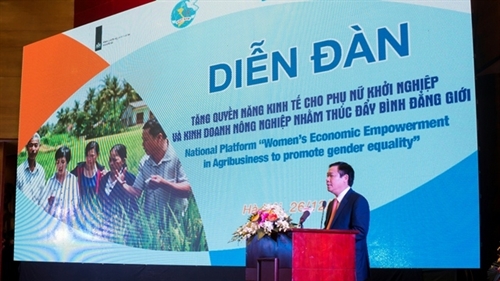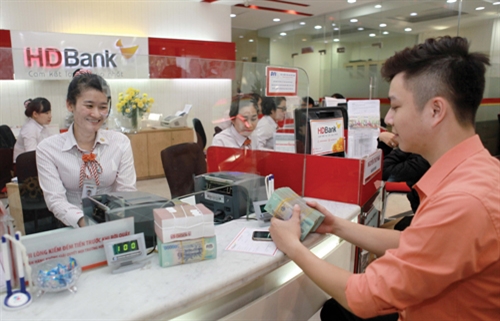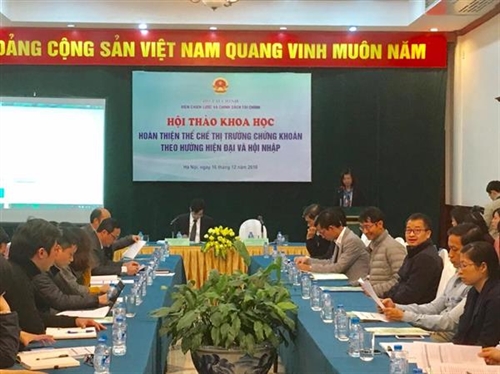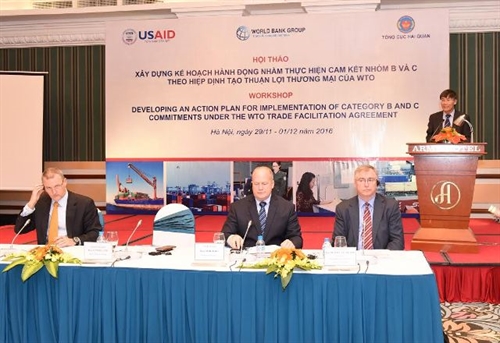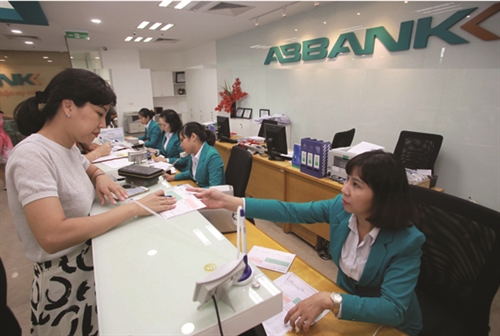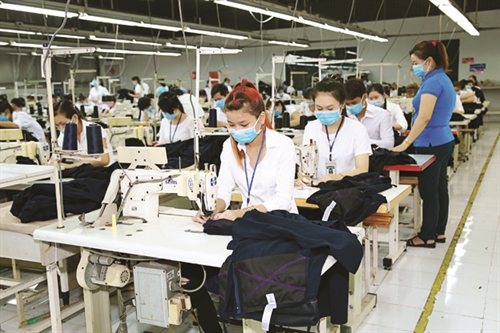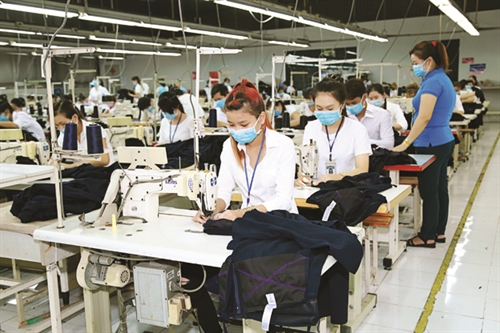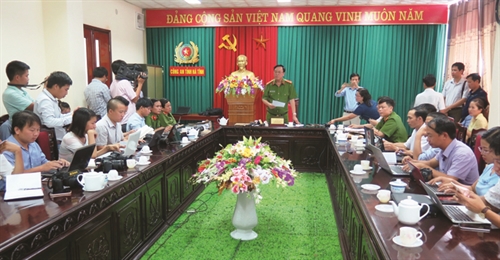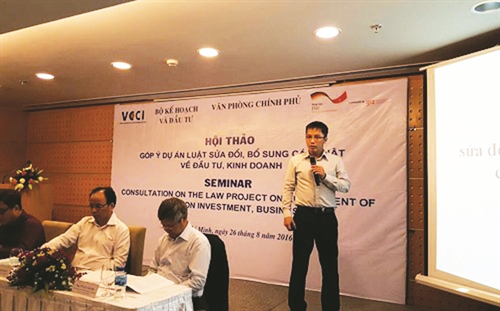 |
Lawyer Pham Duy Khuong
Director of SB LAW[1]
At the end of 90s, franchise remained strange to almost people in Vietnam. At that time, it was very difficult to have a chance to use, enjoy or even see the products and services of the world’s well-known brands in Vietnam. KFC, McDonald, Starbucks and Lotteria were still a dream of the Vietnamese young generation.
But now, dream comes true. You could start a beautiful morning with your friends at a Starbucks or then enjoy happy moments at lunch with your family at a KFC or Lotteria restaurant. You could also purchase newest products of Nike or Adidas as well as other worldwide famous brands at stores in Vietnam. Such change comes from one of the effective business models - franchise.
After 40 years of Doi Moi (renewal) and more than 19 years since its entry into the World Trade Organization (WTO), Vietnam has emerged as one of the most attractive countries for investors and franchisors with a population of over 90 million (65% of whom are under 35 years old) and a very dynamic consumer class with a strong preference for foreign brands.
Despite the global economic slowdown, thanks to its advantageous location, population, and consumer habits, Vietnam is now an ideal destination for many investors as well as franchisors who are seeking a chance for successful business activities in one of the fastest growing countries in Southeast Asia.
According to statistics of the Vietnamese Ministry of Industry and Trade (MOIT), around 160 franchise systems have been so far franchised in Vietnam. This figure only shows the franchise systems required to register with MOIT before officially commencing their operation pursuant to the 2005 Commercial Law. The dominant business sectors are food service, retail, education, and entertainment, with food and beverage franchises accounting for 30% of the registered franchises.
The primary reason for the sustainable increase in franchise activities in Vietnam is the adoption of the 2005 Commercial Law and then Government Decree 35/2006/ND-CP (which was later amended by Decree 120/2011/ND-CP), which, for the first time, provide a legal framework for franchising.
For foreign franchisors, they are required to register their franchise activities before granting franchise in Vietnam. If they carry out their franchise activities in the country without a certificate of franchise registration, they will face administrative sanctions, including fines ranging from VND 10 million to 20 million (approximately USD 439-878). However, the franchisors must consider the following conditions before registering their activities:
- The franchise system must have been in operation for at least one year. As regards Vietnamese sub-franchisors, they must have operated the franchised business for at least one year before they could initiate sub-franchising;
- The goods or services that are the subject of a franchise agreement must not be on the Government’s list of goods and services banned from business. If they are on the list of goods and services subject to business restriction, a special business license must be obtained before franchising deploys.
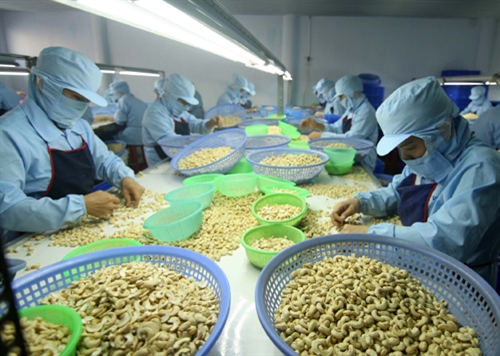 |
| Processing cashew nuts for export in Tuy Hoa city, Phu Yen province __Photo: Vu Sinh/VNA |
A franchise registration dossier must comprise:
- An introduction of the franchise business containing the information as required by Circular 09/2006/TT-BTM guiding the commercial franchising registration;
- A copy of the certificate of business registration or a lawfully equivalent document;
- A copy of the certificate of protection of industrial property rights in Vietnam or in foreign countries if the franchise includes a license of industrial property rights;
- Approval from the primary franchisor to the sub-franchisee in case of a sub-franchiser;
- Other documents required by the competent authority (including the franchise agreement or form of agreement).
All documents issued in a foreign language must be notarized and legalized. In addition, the Vietnamese versions of such documents must also be notarized.
According to Decree 35, the franchisor has obligation to provide the franchisee with the information regarding the franchise system, namely a copy of a form of franchise agreement and an introduction of the franchise business, at least 15 days before signing the agreement. The franchisor must also notify the franchisee of all substantial changes in the franchise system. And if the franchise is a master franchise, in addition to providing the aforementioned information, the secondary franchisor must also provide a proposed franchisee with the following information in writing: (a) information about the franchisor which has granted the franchise; (b) contents of the master franchise contract; and (c) the manner in which secondary franchise contracts will be dealt with in the event of termination of the master franchise contract.
If the parties select application of the law of Vietnam, the franchise contract may contain the following main items:
i. Contents of franchising;
ii. Rights and obligations of the franchisor;
iii. Rights and obligations of the franchisee;
iv. Price and periodic franchising fee, and payment method;
v. Term of the contract; and,
vi. Extension and termination of the contract, and dispute resolution.
The franchise contract must be made in Vietnamese. In the case of a franchise from Vietnam to overseas, the parties must agree on the language of the franchise contract.
Once registered, a franchisor must report any changes in the general information about the franchisor and/or changes affecting the relevant industrial property rights (i.e., changes in Part a) to the competent authority within 30 days after the date of change. In addition, by January 15 every year, a franchisor must send an annual report to the competent authority on the matters contained in the disclosure document.
The above regulations regarding franchise activities in Vietnam are provided in the 2005 Commercial Law. However, such regulations were issued in 2005 and there are some defects in this law such as the definition of franchising is not clear for distinguishing with a trademark license agreement or transfer technology agreement; the conditions on franchisee and sub-franchisee are not fair enough for protecting the rights of sub-franchisees. In addition, the method and measure for controlling and checking the franchisee’s activities by the franchisor are not clear. Furthermore, numerous changes in the legal system, such as adoption of new investment and enterprise laws, the civil code, changes in the legislative mindset of lawmakers, have been generated in order to protect and ensure the freedom of enterprises as well as the actual business conditions as Vietnam is widely and deeply joining the global economy. Therefore, the need to revise the said regulations should be taken into account.
In fact, the drafting of a new commercial law is underway and, according to MOIT, the draft will be submitted to the Government in 2017 and disclosed for public input, before it is submitted to the National Assembly for passage in 2018.
The franchise business in Vietnam has stably developed in the past. With a new commercial law to be adopted in a short period of time, hopefully this business will further prosper.-
| [1] Hanoi Office: Fl 18, Center Building, Hapulico Complex, 85 Vu Trong Phung Street, Thanh Xuan District, Hanoi. Tel: (84) 4 62 62 0246 | Fax: (84) 4 66 64 0246 Hotline: 0904 340 664 | HCM City Office: 5 Floor, VTP Building, No.8 Nguyen Hue Street, Ben Nghe Ward, District 1, HCM City Tel: (84)(08) 352.08.101| Fax: (84)(08) 352.08.102 Hotline: 0907 319 888 |
| www.sblaw.vn, www.baohothuonghieu.com | |
